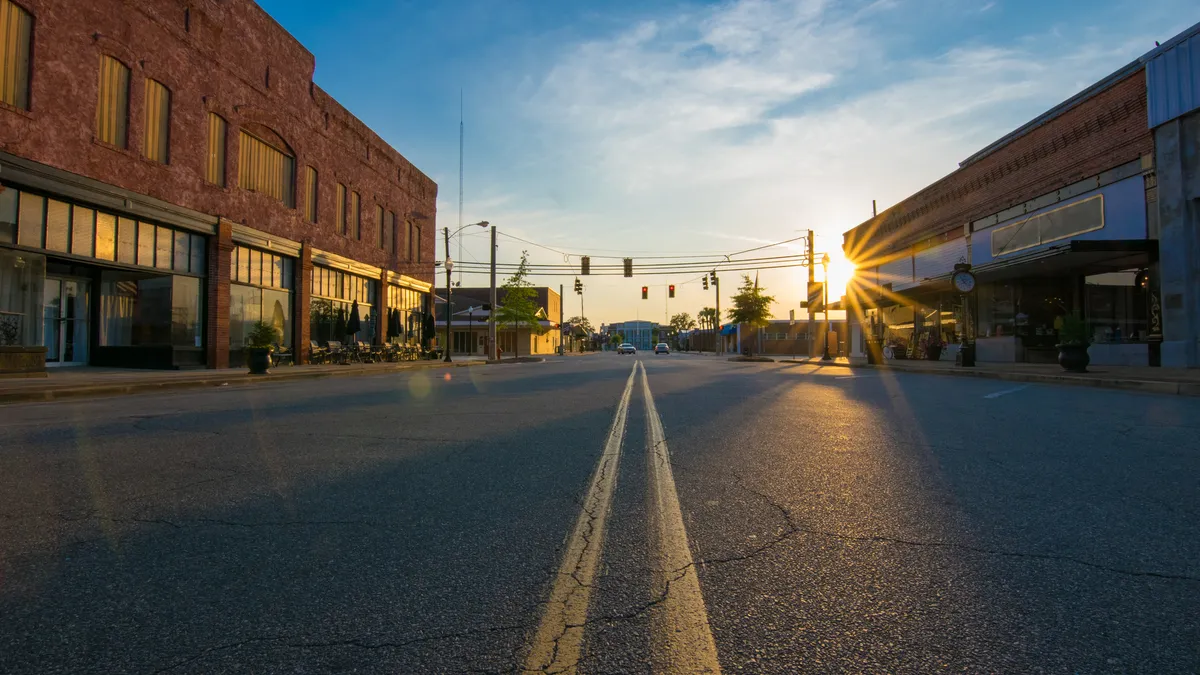As businesses weather the economic disruption caused by the coronavirus pandemic, online small-business lender Kabbage is urging Congress to retool the Small Business Administration’s Economic Injury Disaster Loan (EIDL) program so that private partners can help the agency get cash to struggling businesses.
The SBA announced last week that the disaster loans would be made available to small businesses affected by the outbreak. But unlike the SBA’s standard 7(a) program, where banks originate the credit for small-business loans, which are guaranteed by the administration, the SBA is the creditor for the EIDL program and private partners are prohibited from working on the agency’s emergency side.
Sam Taussig, head of global policy at Kabbage, said the fintech is in talks with the Trump administration, the U.S. Treasury, the National Economic Council and members of Congress, as well as the SBA, to allow the agency to use existing partners in its 7(a) structure to help onboard customers, automate underwriting and credit checks and feed that information digitally to the SBA for its disaster loan program.
Kabbage originates its small-business loans through its banking partner, Celtic Bank, which is a partner in the SBA's 7(a) program.
“Think of it as a larger private-sector conduit funneling people to SBA credit approvals for emergency disaster loans,” said Taussig, adding Kabbage's real-time data and cash flow underwriting and technology tools would save the SBA the time it takes to sift through paperwork and allow the loans to be approved quicker.
Through legislative action, Taussig said the fintech is hoping the SBA would be given the power to waive certain paperwork provisions and publicize its credit standard, allowing any private partner inside its existing 7(a) program to help originate EIDLs.
Through the EIDL program, a small business can receive a recovery loan of up to $2 million, with a maximum 30-year term.
“We should look at all private-sector folks here and say, 'If you can help onboard credit where SBA is the creditor or even originate credit guarantee, this is the time to consider this, even if only for a temporary one year sunset provision,'” he told Banking Dive. “We're looking at days until lots of small businesses face really difficult economic choices.”
Small businesses across the country are scaling back or ceasing operations amid the COVID-19 pandemic, and many face the possibility of closing their doors indefinitely if they can’t get access to cash soon.
And as the SBA faces a potential flood of small businesses in need of loans, there is a concern that the agency lacks the capacity to provide the loans quick enough.
Chris Hurn, CEO and founder of Fountainhead, one of 14 nonbank SBA lenders in the country, told CNBC he is concerned the SBA doesn’t have the ability or infrastructure to deal with the “unprecedented” demand.
“The primary mechanism to get relief and recovery for businesses is going to be the SBA and it can’t take weeks or months, that will be catastrophic and a real risk of running into a depression if they can’t move quickly,” Hurn said.
Hurn also expressed concern about the number of lenders available to help the SBA with its standard 7(a) loans.
Only 14% of all banks, nonbank lenders and credit unions have made SBA loans in the past 12 months, Hurn told CNBC. While the lenders worked with the SBA to make up to $30 billion in standard 7(a) loans in the past year, Hurn said, “I don’t know the last time a private lender made a disaster loan.”
Taussig said he doesn’t believe the SBA is tooled to respond to a widespread disaster like the one brought on by the coronavirus.
“It’s tooled to respond to disasters like hurricanes, after the fact, where physical damage was sustained,” he said.
The SBA did not respond to Banking Dive’s request for comment.
Legislation
Meanwhile, lawmakers on Capitol Hill are working on their own plans to inject capital into small businesses struggling to stay afloat.
A draft bill by Sen. Marco Rubio, R-FL, the chairman of the Senate Committee on Small Business and Entrepreneurship, would boost funding authority for the SBA’s 7(a) loan program from $30 billion to $80 billion.
Another bill put forth by Rep. Nydia Velazquez, D-NY, chair of the House Small Business Committee, would allow the SBA to make the 7(a) loans directly, bypassing the private sector.
Velazquez’s bill would authorize $100 billion to provide up to $100,000 in direct grants for small businesses that have had to close their doors temporarily due to the outbreak.
Cash is king
One-quarter of small businesses have 13 days or less of cash on hand, according to a 2016 report by JPMorgan Institute.
“If there's no revenue coming in, then the small businesses will begin to make tough economic decisions, whether that's paying rent or their mortgage or laying off employees,” Taussig said.
As the economy comes to a standstill, layoffs are already taking place across the country.
Initial unemployment claims rose to 281,000 last week, up from 211,000 the previous week, according to numbers released Thursday by the Labor Department.
To help get cash to small businesses, Kabbage created a website where struggling businesses can sign up and sell gift certificates for future use. Consumers can purchase the gift certificates ranging from $15 to $500 and redeem them once the crisis ends.
Businesses will receive the cash within one day of the purchase, Kabbage said.
“The impact of COVID-19 on small businesses requires the support of a nation,” Kabbage co-founder and CEO Rob Frohwein, said in a statement. “If there is a local small business that you love, they need your patronage now more than ever. Many businesses are closing, and others are seeing reduced demand. The site is a means for the millions of small businesses that employ more than half of all employees in America to continue making sales and to feel your commitment to their long-term success.”



















